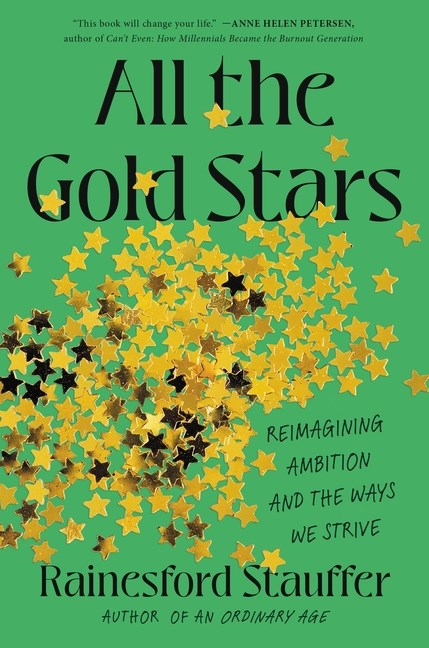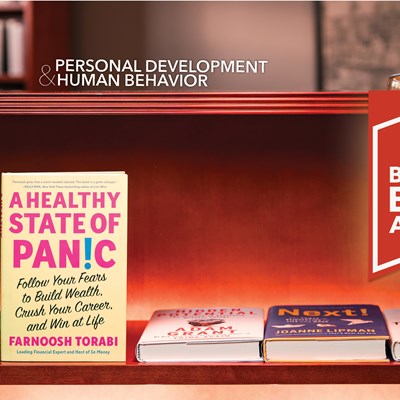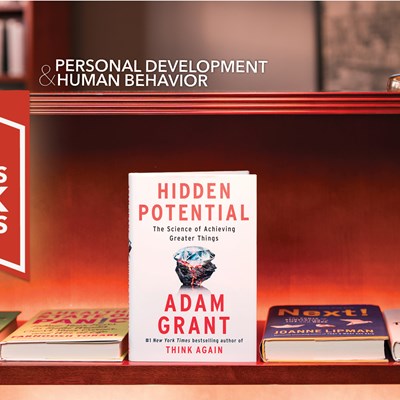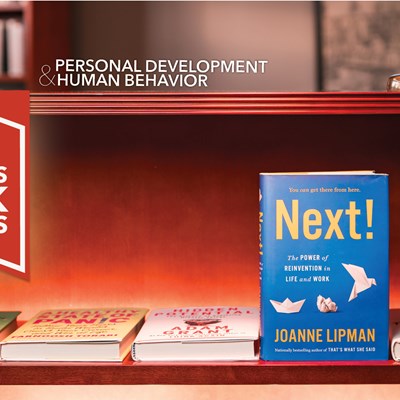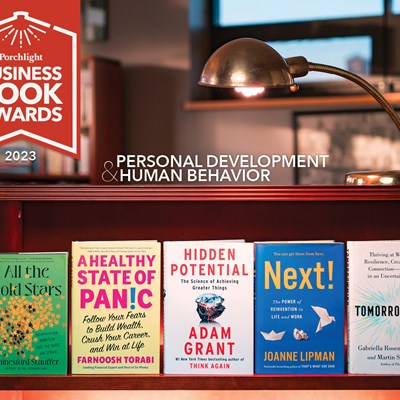All the Gold Stars | An Excerpt from the Personal Development & Human Behavior Category
January 04, 2024
From journalist and author of An Ordinary Age, an examination, dismantling, and reconstruction of ambition, where burnout is the symptom of our holiest sin: the lonely way we strive.
As Porchlight's Creative Director Gabbi Cisneros recently wrote:
Stauffer’s book recalibrates our ambition and puts into perspective the important things we’re saying no to (friends, hobbies, communities) when we keep saying yes to the systemic pressures of work, financial worth, and conformity.
The following excerpt is from the book's Introduction and explains why, if asked to describe our relationship status with ambition, most of us would say "It's Complicated … "

The pandemic might’ve been one visible, drastic change to ambition, but the past couple of years were really only one of multiple makeovers that ambition has undergone. Or rather, ways it has been blown up and rebuilt. While the concept of ambition predates capitalism, capitalism created new versions, funneling what it meant to have desire or goals for your life into narrow definitions of success and happiness in a system that doesn’t come close to guaranteeing everyone the safety, stability, and support to envision their futures in the first place. That striving—as we’ll see—pops up all around us, from the education system, to our sense of being “on track” (who is keeping time?), to America’s history of ascribing worth, identity, and deservingness to work. It steals what we love and morphs it into outputs; gathers up all our little idiosyncrasies and secret dreams and mundanities that shape everything we are and attempts to smooth them out. What we want and what we’re supposed to strive for—be it because of cultural expectations, fear of taking a wrong turn and it all going wrong, or what’s structurally reinforced as good dreams, a good life—are like melted- down crayons, increasingly indistinguishable from one another as we search for where our ambitions end and expectations begin.
So many modern ideas of ambition are rooted in work- related self- development, self- improvement, and career mobility, but ambition isn’t just about work. One study of the psychological characteristics of ambitious people said that “ambition as a person’s desire for recognition and importance is realized in various spheres of human activity.”6 And there are deeper questions: desire for what? That’s how I’d phrase it to a friend. I know I’m reaching, but what on earth am I reaching for?
Reading that also made me curious: if ambition can be realized across different spheres of life, can we be ambitious in relationships, friendships, or communities? Does that automatically render those connections transactional? Or can we be ambitious in terms of hobbies, even if we never plan to make them into a career or a calling? What would it look like if we spent our ambition on each other? When I sat down—on the phone, on Zoom, via email, and occasionally in person—with people to talk about how they’d lost their ambition, their relationship to striving, and what ambition meant for them, the above definitions were some of what I heard. As many times as ambition led someone to pursue what mattered to them, it exploited someone else. For as often as ambition was heralded as a means of individualistic striving, there were people pouring energy, time, and imagination into a kind of ambition that felt more collective. Even as we denounced ambition via quitting or questioning, it clung to us, the residue of a gold star sticker pried off the top of a page.
In these pages, we’re going to complicate ambition further. First, this book unpacks the roots of where ambition even comes from—turns out that’s more loaded than gold star stickers would have us believe. Moving through the impact of family and school systems on self- worth, the emphasis on timelines of achievement, and, of course, overwork, we’re going to reckon with the stakes of ambition: what it grants us, but also what it steals; what it says about our worth; what it means when we don’t define it for ourselves. From there, we’ll explore a different definition: What does it take for ambition to be self- defined but also collective? How can we be ambitious about community, about fun, and about each other? What does it mean to truly be ambitious about ourselves, for that matter—not what we can earn, but about the kind of lives we want to live?
Because ambition is so loaded, so personal, this book doesn’t seek to be a complete history or analysis of ambition—which would be a very ambitious book. It asks more questions than it answers, in part because reimagining anything means getting curious—including with ourselves—about what stirs us, drives us, and why. Throughout these pages, I’ve woven my personal story, discussing my chronic illness (which still evades a neat diagnosis) and mental health. I do not intend to be prescriptive: these are personal experiences that do not speak on behalf of larger communities. I’m still learning how ambition might have molded my relationship to these parts of myself, and there are no clean-cut conclusions. But my striving was interwoven around my understanding of and relationship to the self I was, the person I am, and the person I aspire to be.
In this book, you’ll hear from people in a variety of life stages, identities, and circumstances and how ambition manifests for them: the pressures of endless striving and chronic never-enough-ness and how the stakes of that unfold in schools, in jobs, and at home. But we’ll also explore their revised definitions: ambition about collective action, about play—from artistic swimming (in which swimmers perform a choreographed routine to music) to friendships. They generously discussed how grief changed their ambition, how care infrastructure is inherently ambitious, and what resources would make dreaming possible. Even their experiences, profound as they are, don’t paint a full picture of everything ambition can be, of every way it functions. This book doesn’t instruct how to be ambitious, or whether you should be at all. But my hope is that in complicating ambition, we move closer toward goals that feel more like us—to be more imaginative, more engaged, and more caring. That starts with the fundamental question: What is our ambition for?
Excerpted from All the Gold Stars: Reimagining Ambition and the Ways We Strive by Rainesford Stauffer. Copyright © 2023. Available from Hachette Go, an imprint of Hachette Book Group, Inc.


